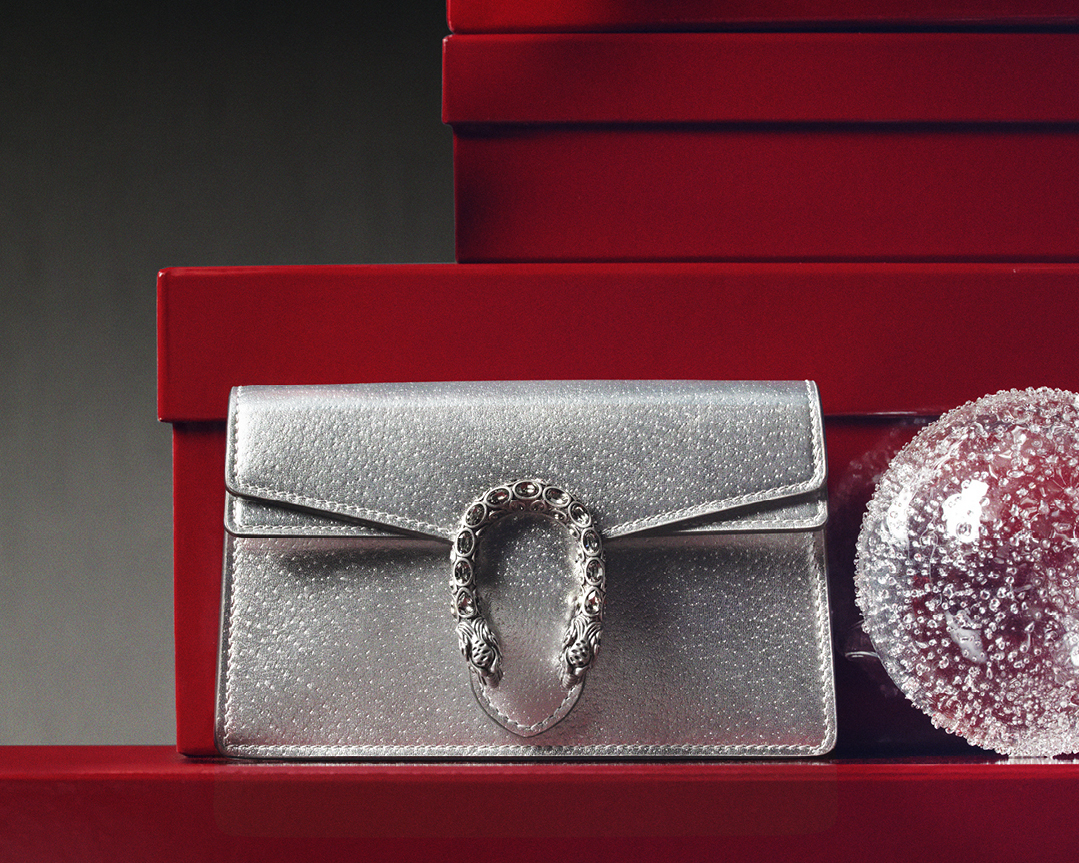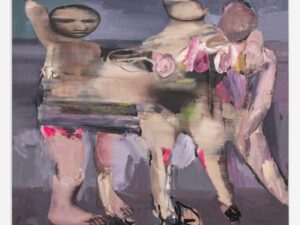The internet has made it easier for artists to reach new audiences, but it also exposes creative work to imitation and obscurity.
REPRINT: FACIAL RECOGNITION
Fräulein speaks to the Taiwanese artist John Yuyi about photographing herself, copyrighting creativity in the digital age, and the brave new world of NFTs. The essay by Angela Waters was first published in the current print issue exploring the discourse around ‚I,‘ which can be found in stores and ONLINE
It’s hard to navigate through social media without seeing Chiang Yu-yi’s face – better known to the world by her professional name, John Yuyi. Over the past six years, the Taiwanese artist has become synonymous with images featuring temporary tattoos that make the viewer question what is digital and what is real. From her early work that stitched visual language from Facebook and Twitter onto skin, to the real-life face filters she created for Gucci and her editorial work that layers human expressions over banana peels, instant noodle cups or monstera leaves, there is a common thread: Yuyi’s own face. But in a space that is obsessed with selfies, the 30-year-old artist is surprisingly practical about her self-portraits.
“At the beginning, I wasn’t able to afford models and I still don’t feel right shooting someone without paying them,” Yuyi says in a Zoom interview. “But, more importantly, I wanted people to make the connection between temporary tattoos and John Yuyi.”
She has a point. The internet has made it easier for artists to reach new audiences, but it also exposes creative work to imitation and obscurity. When images and aesthetics go viral, they often follow the trajectory of memes, which change over the course of their virality to become so unrecognizable from their origins that it takes historian pages like Know Your Meme to pinpoint exactly where and how they started. By repeatedly using her face, Yuyi guarded her temporary tattoo technique from becoming just another online trend.
The question of how to protect and monetize creative work in the digital realm is a topic that comes up often between Yuyi and her contemporaries, as many of them have seen their online work disappear onto mood boards for the millions of content creators looking for an edge. This is part of the reason NFTs (non-fungible tokens) are so interesting to the temporary tattoo artist. NFTs allow artists to monetize digital work by using blockchain to verify the origins of pieces that would otherwise be easily copied. The cryptocurrency-backed market model also gives creators the agency to sell pieces directly. Yuyi’s first NFT, “Yuyi on Discs,” is currently part of the group show “The Artist is Online” at König Gallery in Berlin, which also features digital artists and collectives like Zach Lieberman and Keiken.
“I am curious when it comes to NFTs,” Yuyi says hours before the digital auction of her piece is set to go live. “I am not 100% optimistic, but something new is happening and it is exciting for me right now. I don’t know how this will go, just like I never know how TikTok will go.”
Yuyi’s NFT is a full-body portrait of the artist, shown as a collage with different parts of the same image printed onto multiple CDs in a variety of sizes that create a superhuman figure when stacked on top of each other. Like the artwork itself, the group show can only be viewed online. The König Gallery is recreated in the virtual world of Decentraland, where users can create avatars that roam around the virtual gallery and interact with each other. At the time of publication, the piece was valued at close to 2000 euros.
Despite the excitement, many are skeptical, warning that the market is more concerned with value speculation than art appreciation and that NFTs are increasing the already large energy consumption of cryptocurrency. “It is controversial because some people say it is environmentally unfriendly,” Yuyi says. “After I posted about this group exhibition, I got DMs calling me capitalist.”
The image Yuyi projects of herself in her work is that of a confident woman who doesn’t second guess her decisions or worry about what people think of her, but in real life, the artist admits that she sometimes struggles with critiques, how to present herself, and even whether or not she wants to be in front of people at all.
“I think that my work shows this persona that is fearless and brave enough to do anything, but my real self struggles every day and I often feel that I am not good enough,” she says. “In 2019, I was feeling very insecure and was not confident. Sometimes, I would try to lay low when walking down the street because I was insecure about myself and what I was wearing.”
Interestingly enough, Yuyi notes that she did not shy away from making and posting artwork featuring self-portraits during this period of insecurity, but she did see herself back away from posting stories on Instagram where she spoke to followers as herself. Visually, there isn’t a striking difference between John Yuyi and Chiang Yu-yi because the artist chooses to only use photo editing tools to enhance the overall image, rather than to make herself look more conventionally attractive. Still, the choice to give her work persona a different name was deliberate, because as far as she is concerned, they are different people.
Although 2020 saw everyone taking a step back from society as COVID-19 spread across the world and people entered different levels of lockdown, Yuyi took the time to create a practice that was less reliant on the social media channels that contributed to her rise. When the pandemic broke out last March, she left New York City for her home country of Taiwan, finding herself in the unique situation of being in a country with a relatively low case number that allowed for galleries to operate relatively normally. So, while much of the art world was scrambling to digitize, Yuyi opened her first solo installation exhibit, “Eye See No Lashes,” at the Tao Art Space in Taipei. While the 3-D work stays true to Yuyi’s distinct style, which heavily features faces, eyes and layering images in an unexpected way, the interactive nature of the pieces is made to be seen in person rather than online.
“I was online when everyone else was not that active, and now I feel like I don’t want to be so online when everyone else is online 24/7,” Yuyi says. “I have a love-hate relationship with social media. I post less because I get the feeling that a lot of internet artists are kidnapped by likes. At the beginning, they just want to make a name on the internet and for people to see them, but when they get the name and the followers, they also get a fear of losing them, so they have to feed them more content and more exciting content. That’s not supposed to be the reason why you are making art.”
With more than 200,000 followers and a signature style, Yuyi got what she came for on social media. What interests her now is pointing the camera at others. “Now, I feel like I want to shoot more people, not myself or models, but people I think are cool. I want to do more things behind the camera instead of doing both modeling and shooting. I think it is time for a change,” she says.
Image Courtesy of the Artists



